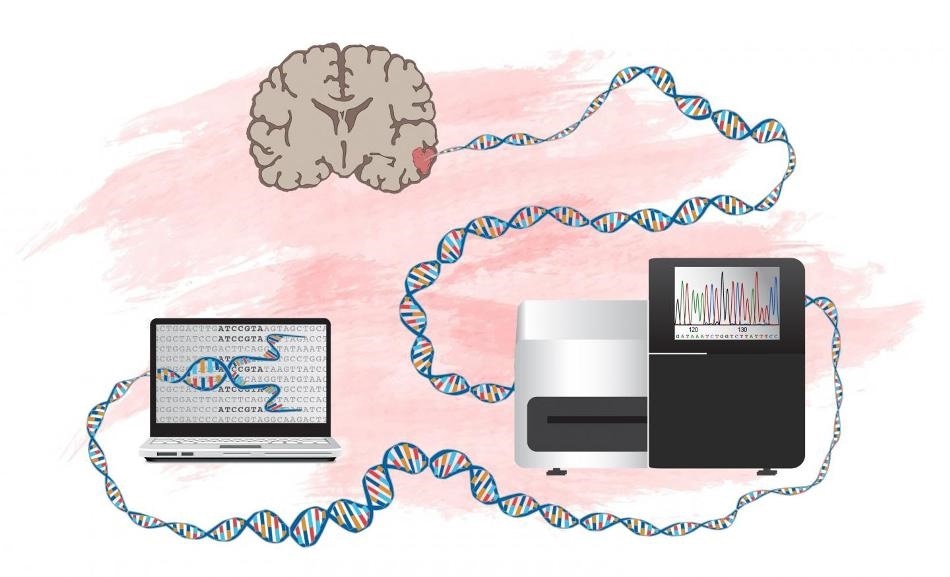Uppsala University researchers have developed a new approach to identify functional mutations and their impact on genes applicable to the development of malignant brain tumor, glioblastoma, that is known to have a very poor prognosis. The study has been published in the Genome Biology journal.

How to identify genes that can drive the development of brain tumors. Image Credit: Graphics: L. Gaffney.
The human genome contains virtually 22,000 genes. Several studies have investigated almost 2% of human DNA that creates proteins. Not much is known about the remaining 98% of DNA that fails to encode proteins.
But these non-coding regions do contain significant data and control whether a gene is active in different types of tissues, in different developmental stages, and in diseases like cancer.
Cancer is induced by mutations that result in the uncontrolled division of cells. Glioblastoma, a form of brain tumor known for its very poor prognosis, is one of the most aggressive forms of cancer. Researchers are not completely certain how mutations in non-coding regions cause glioblastoma.
Hence, to address this knowledge gap, Uppsala University researchers have carried out whole-genome sequencing of DNA in tumor tissues obtained from patients suffering from glioblastoma and examined the identified mutations.
One of our key tasks was to identify functional mutations associated with regulatory elements and potential relevance to the development of cancer cells, and to distinguish them from all random variations without presumed significance.”
Karin Forsberg Nilsson, Professor, Department of Immunology, Genetics, and Pathology, Uppsala University
The scientists assumed that DNA sequences that have continued to remain unchanged in mammals all through the evolution may probably have significant functions. Hence, the researchers intersected scores of mutations that were found to contain evolutionary conservation data of the genetic regions where the mutations exist.
We chose to focus on a subset of mutations in the best-preserved genetic regions that are likely to affect gene regulation.”
Kerstin-Lindblad-Toh, Professor, Department of Medical Biochemistry and Microbiology, Uppsala University
Professor Kerstin-Lindblad-Toh also works at the Broad Institute in the United States.
The scientists verified their results by employing a gene called SEMA3C, partially because they identified a huge number of mutations in non-coding regulatory regions close to this gene and partially because earlier findings, made by others, imply that the SEMA3C gene is associated with a poor cancer prognosis.
We studied how mutations in non-coding regions affect SEMA3C's function and activity. Our results show that a specific, evolutionarily conserved, mutation in the vicinity of SEMA3C disrupts the binding of certain proteins whose task is to bind genes and regulate their activity.”
Karin Forsberg Nilsson, Professor, Department of Immunology, Genetics, and Pathology, Uppsala University
This latest study also detected over 200 other genes enriched for non-coding mutations in the concerned regions. These genes may have regulatory potential that can further boost the number of genes involved in the development of brain tumors.
“Our results confirm the importance of the association between genetic alterations in non-coding regions, their biological function and disease pathology,” Forsberg Nilsson concluded.
Source:
Journal reference:
Sakthikumar, S., et al. (2020) Whole-genome sequencing of glioblastoma reveals enrichment of non-coding constraint mutations in known and novel genes. Genome Biology. doi.org/10.1186/s13059-020-02035-x.